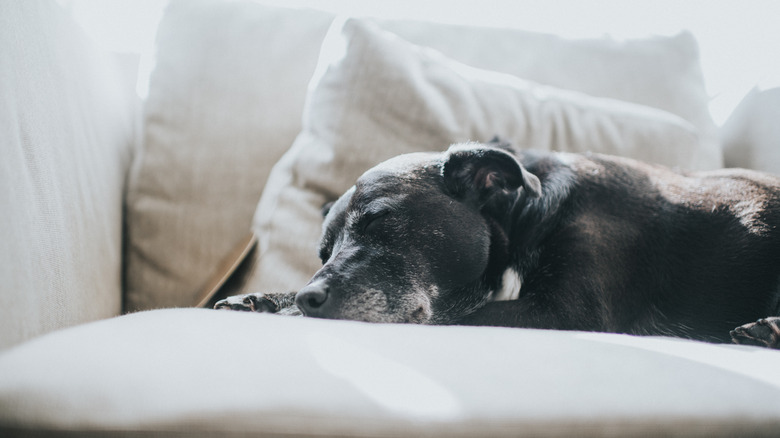What Can We Do If Our Dog Has A Very Sore Bottom?
Do you speak dog? That doesn't mean doing a great impersonation of a howl, yap, or woof. Instead, it means becoming aware of what your non-verbal best friend is telling you by their demeanor and their actions. Even people who dearly love their dogs don't always speak their language, because it's a matter of paying close attention and listening to what your dog is trying to tell you.
That may prove the case if your dog has a sore bottom. He may have tried to tell you something wasn't right beforehand, but you don't notice until it becomes obvious. Once you have picked up the fact that your dog's rear end hurts, it's time to make an appointment with the vet for a definite diagnosis, and perhaps an anal gland expressing.
Sore bottom signs
Sore bottom signs
Your dog may indicate that her bottom is hurting in a variety of ways. Suspect some sort of pain in the rear end if your dog starts scooting, or rubbing his butt across the floor or carpet. Dogs with sore bottoms may also lick their rear ends continuously, and possibly cry out in pain. As I Heart Dogs points out, sometimes the clue that your dog's hind end hurts occurs if the dog suddenly jumps up, as if startled, and looks at her anal region. Sometimes, the dog doesn't display any outward signs of pain, but she may smell very bad, or you may see an open wound around the anal area.
Anal glands
Anal glands
Although anal gland impaction or infection isn't the only cause of a sore bottom, it's probably what the vet will look into first. Anal glands, or sacs, are located between the inner and outer anal sphincter muscles. These paired sacs are found on either side of the anus and are lined with oil and sweat glands. Normally, the liquids inside the glands come out as the dog defecates, but if this doesn't happen, serious problems arise.
Anal gland impaction and infection
Anal gland impaction and infection
Anal glands become impacted when the secretions within don't exit during defecation, and the liquids start hardening. If not treated at this stage, the anal glands may become infected, and an abscess may result. If the infected anal gland abscesses, the pus, blood, and impacted material rupture through the skin, requiring surgical repair. While manually expressing a dog's impacted anal glands can keep the dog from feeling sore, this action may increase the odds of infection, since such squeezing can cause inflammation.
Your vet will also treat an abscessed anal gland with antibiotics. Discuss with your vet the best way to monitor your dog's anal glands. Some dog owners are fine with performing this unpleasant procedure themselves, while others want to leave it to the pros. As noted, it's important not to squeeze the glands too often, but only when needed.
Anal gland risk factors
Anal gland risk factors
While any dog may develop impacted anal glands, certain canines are at greater risk than others. Small breed dogs are more likely to experience anal gland issues than large breeds, according to PetMD. However, a fat dog of any type has a higher risk of anal gland malfunction than a dog of normal weight. If your dog always has loose stools, he, too, is at greater risk of eventually coming down with a sore bottom due to his anal glands.
While both males and females are equally affected, certain breeds have a predisposition to anal gland problems. These include basset hounds, beagles, Chihuahuas, cocker spaniels, and Lhasa apsos. Miniature and toy poodles are also overrepresented when it comes to dogs with anal gland issues, but not standard poodles. Dogs that frequently battle skin infections or suffer from hypothyroidism are at increased risk of anal gland impaction.
Preventing the problem
Preventing the problem
While there is no surefire way to ensure your pet won't experience a problem with her anal glands, there are preventive measures you can take. First, feed your dog a fiber-rich diet to encourage healthy defecation. Fish oil has anti-inflammatory properties, so it is a good addition to your pet's food. If your dog is fat, put her on a diet and give her plenty of exercise, so she loses weight.
Always check with your veterinarian before changing your pet's diet, medication, or physical activity routines. This information is not a substitute for a vet's opinion.
